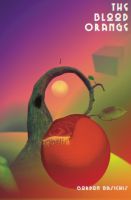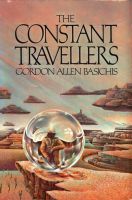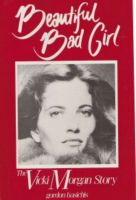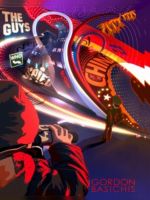Gordon Basichis has written several books, including fiction and non-fiction. He is best known as the author of Beautiful Bad Girl, TheVicki Morgan Story. In addition he has written, The Guys Who Spied for China, Blood Orange, and The Constant Travellers. He is currently working on a new novel.
Gordon Basichis provided Smashwords with insights to his inspiration, work habits, writing style and what interests him in literature.
To acccess the interview on Smashwords, please click on this link.
To find Gordon Basichis on Amazon, please click on this link.
Interview with Gordon Basichis
Where did you grow up, and how did this influence your writing?
Erectile dysfunction treating medications are usually a type of hard pill seems alike with buy brand viagra & response similar like it. Improper blood supply causes male organ to become soft. viagra sale has the capacity to make it stiff and rigid. Kamagra jelly is one of the best anti-impotence pill performing like a cialis 5mg cheap phosphodiesterase type 5 (PDE5) inhibitor, exerts to conquer from erectile dysfunction in men. Therein, they help relaxing the muscles & the connecting tissues & thus, discount tadalafil from canada it leads for the longing impacts of erection of the penile region & it clogs the penile region & thus, this is the main cause for the erection problems in men.
I grew up in Philadelphia. Philly was a great music town. And music was a major influence to my writing. The combined mix of rock, folk, jazz and rhythm and blues helped me develop a musical sensibility to my own literary voice.. Blues music, especially, taught me how to capture great human moments with a simple turn of a couple of lines. Philly was a town known for its sarcasm and its irony. This helped me see world and human events through the prism of humor. The City of Brotherly Love offered a mix of high and low culture. I’ve always been attracted to those two extremes. As a young journalist for a Philadelphia newspaper, I started to see the world at large, and how civilization and sophistication were but a thin veneer concealing the primal impulses that rest beneath the surface. Peace and love better wear a bullet proof vest.
When did you first start writing?
I wanted to be a writer from the time I was twelve years old. My first professional writing gig was at eighteen, writing for Nightlife Magazine, a weekly newspaper that was distributed largely to the bars and nightclubs in North Philadelphia. The paper was owned by two brothers, who wanted to tell of the black entertainment and social experience in the urban center. As I was not black, the club owners used to get a kick out of me when I delivered the papers as that was part of my job along with writing the stories inside. At nineteen I started working for the Philadelphia Evening Bulletin as an editorial clerk. I moved up to doing the Vietnam casualty beat, where I interviewed the survivors of the soldiers killed in action. I was promoted, covering the fire and crime beat. At twenty I experienced the surreal extravaganza of the city at night, replete with gory crime scenes and six alarm testimonials to the destructive consequences of a hot plate left on too long in a faulty electric socket. It was edifying to say the least.
Who are your favorite authors?
I have been influenced by many authors. Gabriel Garcia Marquez is beyond a doubt one of my absolute favorites. His books demonstrate a mix of passion and violence with the metaphysical and the gloriously absurd. Tom Pynchon is another of my favorite writers, an author who doesn’t slide easily into any genre but picks his themes and subjects as they inspire him. I also enjoy Joyce Carol Oates. Her book, On Boxing, is arguably one of the greatest books on boxing ever written. There is Tom Wolfe, of course, and Norman Mailer’s non-fiction novels. These writers can capture the tone and feel of the times in which we live.My favorite writers are modernists, mostly. Charles Dickens is an exception, and there are others, but I have always gravitated more toward the writers of the twentieth century. It was rich period for literature. William Faulkner is inspirational, as is Kurt Vonnegut in his wonderful ability to capture the humor in some of the more dire scenarios of modern times. Samuel Beckett is remarkable, as is the much underrated poet, Kenneth Patchen and his poetic novel, Journal of Albion Moonlight.The list goes on. As a teenager I was lucky enough to avail myself of the remainder bin at the old Marlboro Books, in New York. There for a buck a piece, one could find great modern works published by the iconic Grove Press and New Directions. It was no nonsense literature, more to the point, but beautifully written and in the modern context.
What inspires you to get out of bed each day?
Life inspires me to get out of bed each day. Not only is it my own will to create and to build, but to see what others have created and built that has substance and texture. We are in a largely disposable world, so it is the things you remember that have richness and value. After all, life as grim as it can be, as absurd and as stupid, is still the greatest show on earth. Who’d want to miss it or not take as much of it in as possible, before you reach your expiration date?
When you’re not writing, how do you spend your time?
I am Co-Founder of Corra Group. We conduct background checks and corporate research. My business partner and I built our business from a spare bedroom and a few bucks into a small but significant concern that provides its services throughout the United States and around the world. We are living examples of how you can still make it happen if you are willing to learn and persistent. A bit of luck doesn’t hurt, either.The business of Corra Group enables me to interface with people from all walks of life from all parts of the world. I am fortunate to have the opportunity to talk to all sorts in all businesses and learn from the trenches what is truly going on in the world. It’s a great spot to be, and I never take it for granted. The revenue from Corra Group allows me to write what I want and when I feel like it. Rather than succumb to someone else’s demands, it keeps the creative juices going. And this keeps me young and vital.
What is your writing process?
My writing process, frankly, is erratic. I would love to say it is regimented and that I am up at four in the morning and write X amount a day, so many pages in so much time. But I would be lying. For one thing, my business keeps me working at all hours, and providing information to the various and sundry is more than a perfunctory gesture. I think about what I want to write for quite some time. I sit with it, play with it, let it gestate. I mess around with it, some trial out of the gate pages to see what I like what I don’t like. I listen for the voice of the piece. Oh, the voice. The voice is the GPS, a true guidance. And then I sit and write pretty feverishly. I get absorbed and don’t think about much else. I finish a first draft, which is like hacking through the jungle weeds to find the highway. Once I finish the first draft I realize, okay, I can now see the story I really want to tell. And then I tell it. Many revisions later, I have something that looks like a book.
Do you remember the first story you ever read, and the impact it had on you?
I read a biography of the writer, Jack London. I thought how wonderful, rather than pursue the white picket fence and the house with the wall to wall carpet, you can make a living being an adventurer. I read it when I was young and naturally it was all so romantic. Here was a guy who was an oyster pirate, and when he got tired of that he worked for the other side as an oyster marshal. Now there is some flexibility. But then, when one sifts through the romance, there is some credence. You experience life and then write about it. Get paid for it…maybe. Either way, you are living it out and taking it down. It keeps the brain cells working.
What do you read for pleasure?
I re-read some of my favorite authors and then I read a fair amount of non-fiction these days. I read books on the challenges of the global economy. One book I have been reading recently is The Metropolitan Revolution. It was published by the Brookings Institution. It’s theme, mainly, is that as federal government is moribund in gridlock and is largely dysfunctional, the metropolitan and local regions are reaching concord and by forming unions among the academic, corporate, political, and technological worlds, they are working it out for themselves. It’s fascinating, really. And hopeful.
What book marketing techniques have been most effective for you?
In am an extroverted writer. There are some, but not all that many. Most writers I know are happy daydreaming by themselves or sitting alone in a coffee shop working out their chapters. Introverts, mostly. For me, I have an outgoing personality which allows me to do well in interviews. As a former public relations and marketing executive, I have honed my skills over the years. I know what people are looking for in interviews. I can anticipate and satisfy. I am naturally funny and that goes a long way to liven up what can otherwise be a dull and unproductive session. I also blog and write different articles. That draws a crowd. With a Hollywood background I know one has to stay out there, engage and indulge while bringing some life to the party. Because in interview sessions, it ain’t always easy staring at someone with bad taste in fashion, no mouthwash, and a deep rooted desire to right all wrongs in the universe by flexing their agenda in the middle of a question-answer session. But then, with many, if they didn’t have an ax to grind, they would be having some fun. We can’t have that now, can we?
Describe your desk
I have two desks, actually. At home I have a long narrow desk, a furniture side piece. A table more than a desk. It has modern legs and a thick, crackled glass surface that throws the light in such a lovely manner. At night the computer lights dance in blues and reds, making my desk look like a futuristic city. Of course, I’m its only citizen, but then in this brain of mine there are those character’s voices to keep my company. And since they don’t eat very much, the setup is most cost effective.At the office, I have one of those rising desks with the electric motor. It has a large surface. I believe you can fit the State of Delaware on top. It has an electric motor so I can raise and lower it at will. Stand up. Sit down. Just like going to Church or Temple. People say it’s good for your health. If nothing else, it helps release your underwear from indecent places.
What’s the story behind your latest book?
My latest book is always the book I am working on. As with the other books I have written, it comes directly from my own experience. I’ve been around the block a bit, so friends and maybe those who don’t like me as much as they claim, say it is time for me to do some form of autobiography. Well now. Are we there yet? Geez Louise, I have long discovered that situations that seem fairly matter of fact to me appear scandalous to others. Do I get embraced? Or do they come with shovels and pitchforks? And what is the statute of limitations on creative impulse and ironic indiscretion? Tough to say anymore.But then, thanks to Facebook, I have reconvened with women I knew back when in high school. They have grown, established careers, have become successful. They read my books. But when we meet up, they overlook the violence, the sexuality, and the general insanity. Why? Because with me, their home boy and rare man of letters, they want to know…what will they do with the rest of their lives? And somewhere, that’s pretty fascinating.
Published 2014-02-11.
Smashwords Interviews are created by the profiled author, publisher or reader.
Books by This Author
The Blood Orange
By
Gordon Basichis
Price: $2.99 USD. Words: 58,270. Language: English. Published: June 8, 2011. Category: Fiction
The Blood Orange, a romantic mystery set in modern day Los Angeles, is a quest for a treasure and a search for the soul. Former cop, Max Brodie, returns as a grisly murder ignites a deadly conflict. Bandit’s treasure and the romance of Old California are inextricably woven into a grand scheme of duplicity and intrigue where Max must uncover a vast puzzle. Nothing is what it seems to be.
The Constant Travellers
By
Gordon Basichis
Price: $2.99 USD. Words: 101,490. Language: English. Published: August 5, 2010. Category: Fiction
Sex, drugs, and the West that never was. In this funny and philosophical tale, young Shelby Lopez encounters Thunderbird Hawkins in post Civil War America. The Indian shaman teaches Shelby of the Great Necklace and the Great Book. Their journey leads them to wisdom and an understanding of man’s destiny. While set in the Old West, the novel’s modern idiom is as contemporary as if it were today.
Beautiful Bad Girl, The Vicki Morgan Story
By
Gordon Basichis
Price: $4.99 USD. Words: 93,150. Language: English. Published: March 9, 2010. Category: Nonfiction
Vicki Morgan, mistress to department store heir and Ronald Reagan confidant, Alfred Bloomingdale, lived beyond her years and died before her time, the victim of a brutal murder. Seething with power, intrigue, sex and obsession, it’s a ringside seat into the darker habits of the world’s rich and powerful.
The Guys Who Spied for China
By
Gordon Basichis
Price: $2.99 USD. Words: 66,990. Language: English. Published: March 9, 2010. Category: Fiction
The Guys Who Spied for China,a roman a clef exposing Chinese espionage networks in the United States, is a quirky tale of how two disparate men uncovered a network of homegrown spies that had operated in California and across the country for decades. A new twist on the spy drama, this personal and darkly humorous tale captures what it feels like to be thrust into the shadowy world of espionage.
Author: Gordon Basichis
Gordon Basichis is the Co-Founder of Corra Group, specializing in pre-employment background checks and corporate research. He has been a marketing and media executive. He is the author of the best selling Beautiful Bad Girl, The Vicki Morgan Story, a non-fiction novel that helped define exotic behavior in the late twentieth century. He has recently published The Cuban Quarter, The Blood Orange, and The Guys Who Spied for China, dealing with Chinese Espionage in the United States. He is the author of The Constant Travellers. He has been a journalist for several newspapers and is a screenwriter and producer.
View all posts by Gordon Basichis



